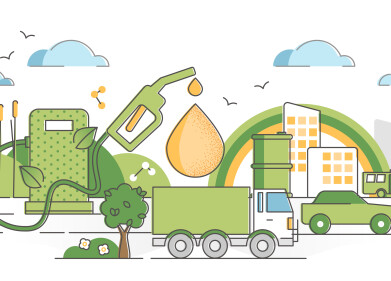-
 Biofuel testing has revealed the structure of biomass affects how easily it can be converted to fuel
Biofuel testing has revealed the structure of biomass affects how easily it can be converted to fuel
Biofuel industry news
Biofuel testing suggests physical structure of biomass matters
Feb 11 2011
The scientists imposed strict limits on their biofuel testing, requiring 70 per cent or more glucan conversion within 72 hours to deem saccharification as being "efficient".
Biomass sources including softwood and hardwood, along with agricultural residues, were examined to determine which converted most successfully using cellulase and beta-glucosidase enzymes.
The residues, with their unstructured form, performed well with lower protein loadings, while the woody sources measured as having relatively inaccessible cellulosic components required larger amounts of protein.
In their conclusion, the researchers write: "These results suggest that the rate-limiting step during hydrolysis is not the catalytic cleavage of the cellulose chains per se, but rather the limited accessibility of the enzymes to the cellulose chains."
Their findings are published in Biotechnology for Biofuels, which reports biofuel analysis ranging from fermentation and bioconversion, through pre-treatment and deconstruction of plant matter, to the development of plants specifically for fuel production.
Digital Edition
PIN 25.6 Buyers' Guide
January 2025
Buyers' Guide Directory - Product Listings by Category - Suppliers Listings (A-Z) Articles Analytical Instrumentation - ASTM D7042: The Quantum Leap in Viscosity Testing Technology -...
View all digital editions
Events
Jan 20 2025 San Diego, CA, USA
Jan 22 2025 Tokyo, Japan
Jan 25 2025 San Diego, CA, USA
SPE Hydraulic Fracturing Technology Conference and Exhibition
Feb 04 2025 The Woodlands, TX, USA
Feb 05 2025 Guangzhou, China


















